Major project
Altrivity: Facilitating Participation In Physical Activity For Young Women Through Community… [Read more]
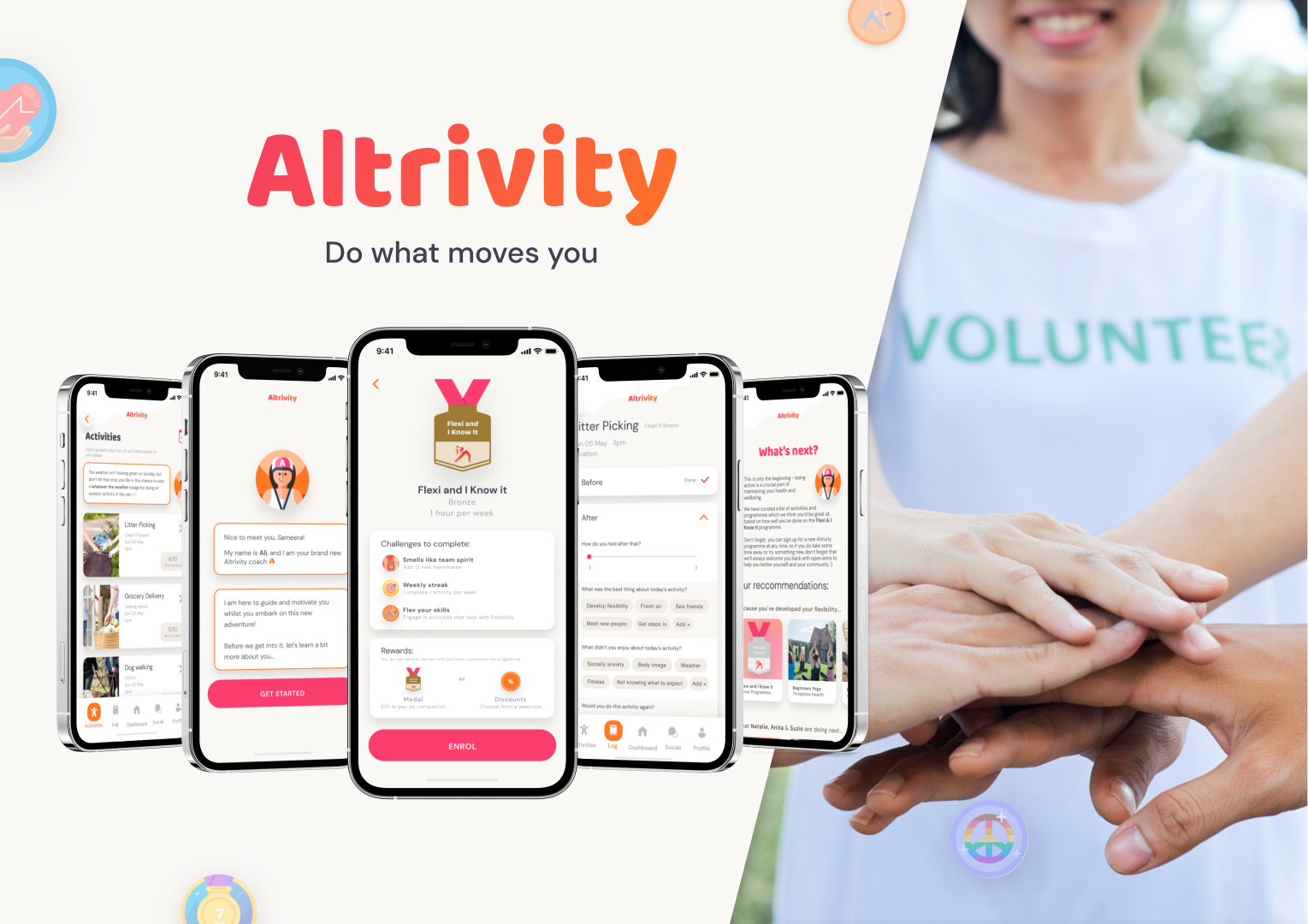
Altrivity: Facilitating Participation In Physical Activity For Young Women Through Community Action
Altrivity is a service that aims to empower young women who struggle to integrate physical activity into their daily lives by encouraging them to participate in 'active volunteering.'
Instead of focusing on performance and competition, Altrivity shifts the focus towards how exercise makes people feel, elevating AI capabilities to help users learn and reflect on the aspects of physical activity that they enjoy and are motivated by so that they can find something they can stick to.
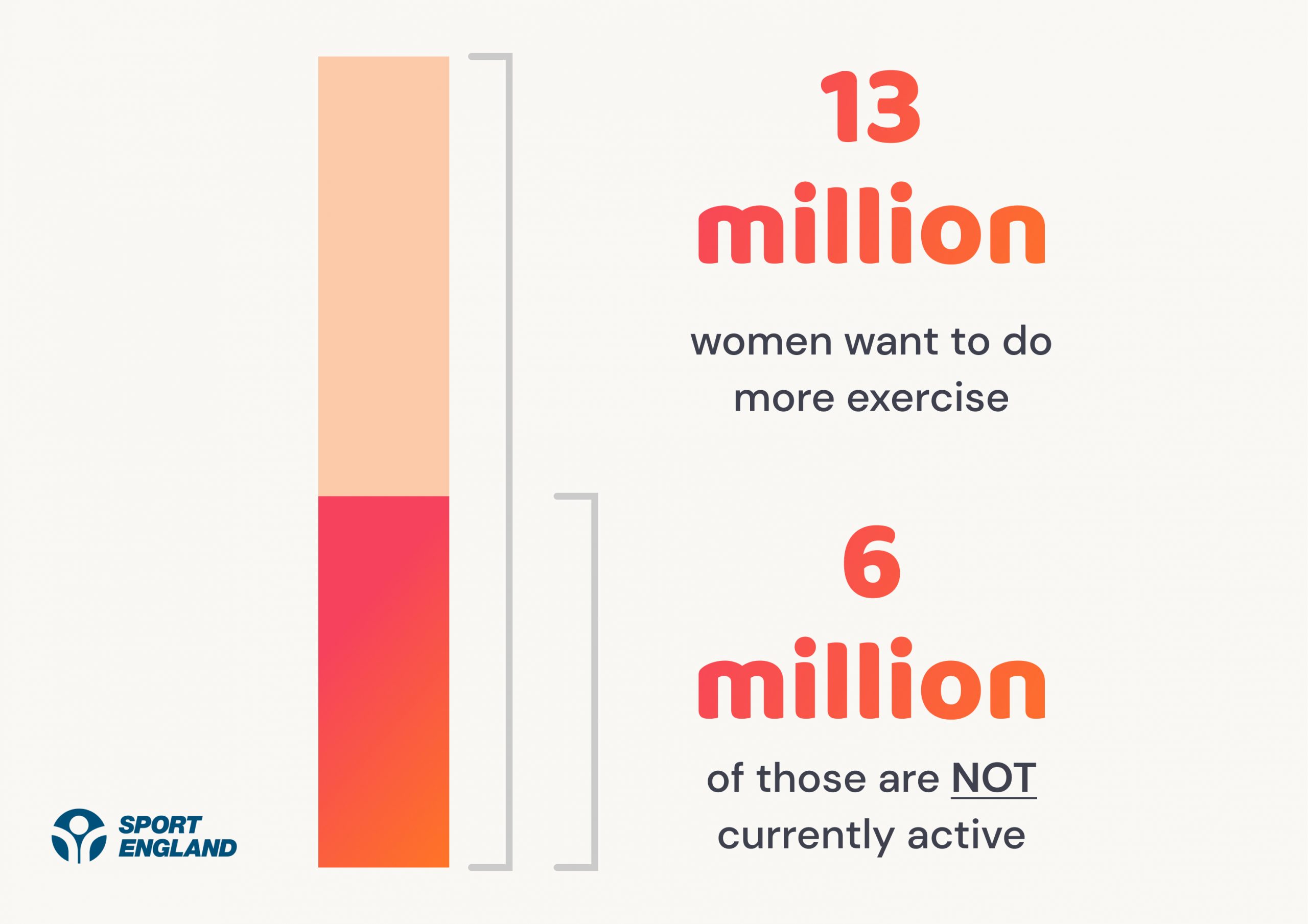
The Challenge
According to a recent study conducted by Sport England, of the 13 million women surveyed who said they wanted to be more active in their daily lives, of those, a staggering 6 million of them were not exercising at all. Many women have experienced greater anxiety, reduced self-esteem and loss of identity as a result of the coronavirus lockdowns, which has had a huge impact on their willingness and motivation to exercise on a regular basis. There is a grave concern that female participation in physical activity will be at an all-time low, which could potentially have negative effects on several personal and societal factors in years to come.
This project aimed to design a solution that reframes the narrative of exercise to help young women overcome the mental barriers associated with exercise, in an effort to make physical activity more accessible and desirable as a result.
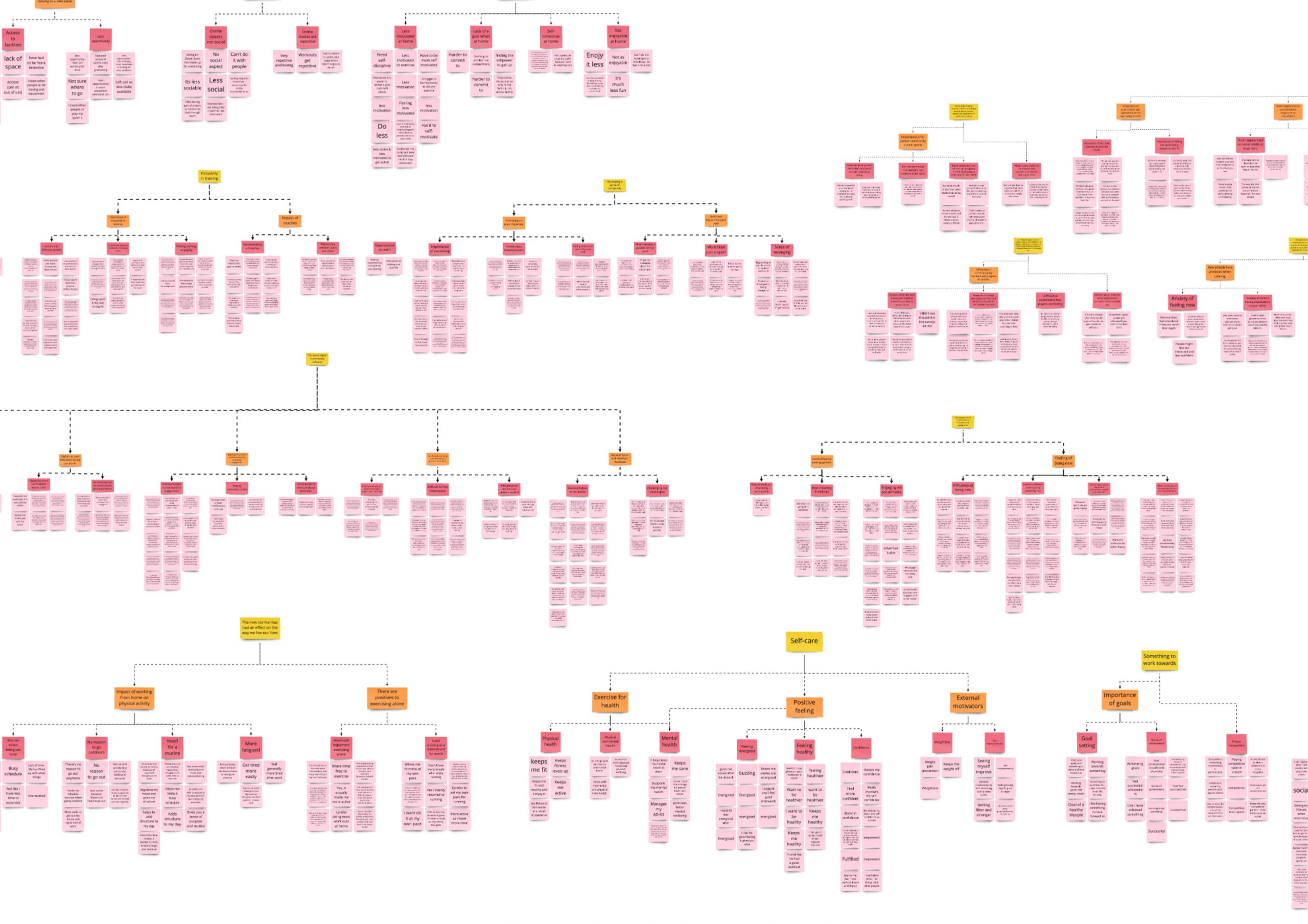
User Research
The research phase investigated the attitudes and behaviours in young women (aged 18-25) with varying degrees of experience and motivation playing sport. A graffiti wall and focus group was conducted initially to understand a broad range of perspectives, before then refining the target audience down to those who want to engage in sport for the first time in several years.
After this initial phase, the following research methods were carried out to probe a deeper understanding of the target user's experiences: auto-ethnography, five diary studies and six semi-structured interviews. Although COVID-19 posed several challenges, it became feasible to align real-time participation in sport with the government's roadmap out of lockdown, allowing for rich behavioural, as well as attitudinal, insights to be derived from the research.
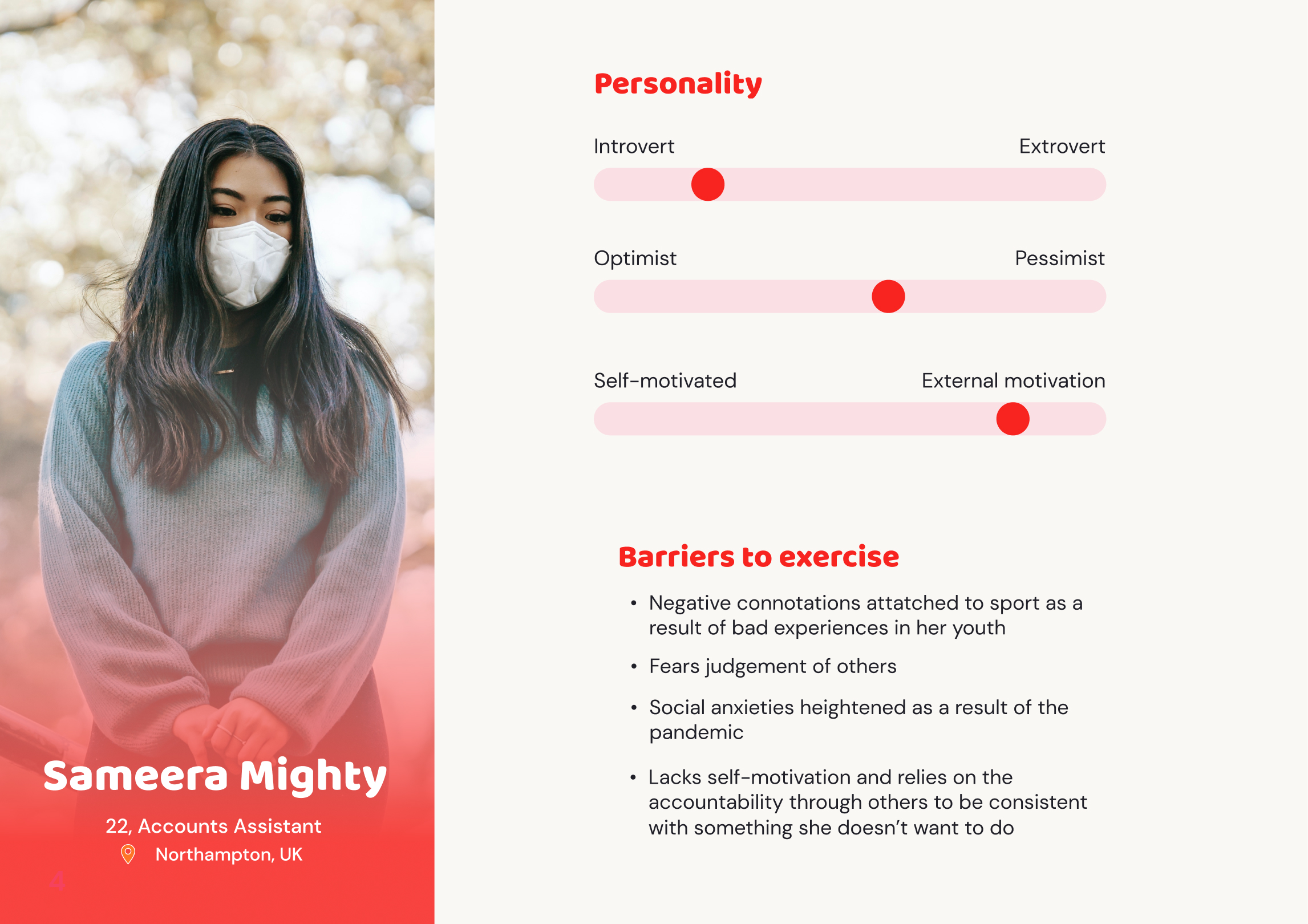
Key Insights
The data was synthesised through a variety of methods, including thematic analysis, affinity mapping, persona creation, journey mapping and compelling experience mapping, deriving five key insights. Interestingly, there was a strong paradox between a desire to exercise with others for both enjoyment and accountability, whilst also being paired with a lack of desire to exercise with others out of fear of judgement and self-consciousness. These negative attitudes, however, are underpinned by entrenched perceptions of sport from childhood experiences, which then manifests itself into the idea of 'exercise as punishment' into early adulthood.
It became clear that there was an opportunity to design a service for young women with this distorted view of sport, who want to become more active and enjoy the benefits of physical activity without the fear of judgement for their lack of ability and/or fitness.
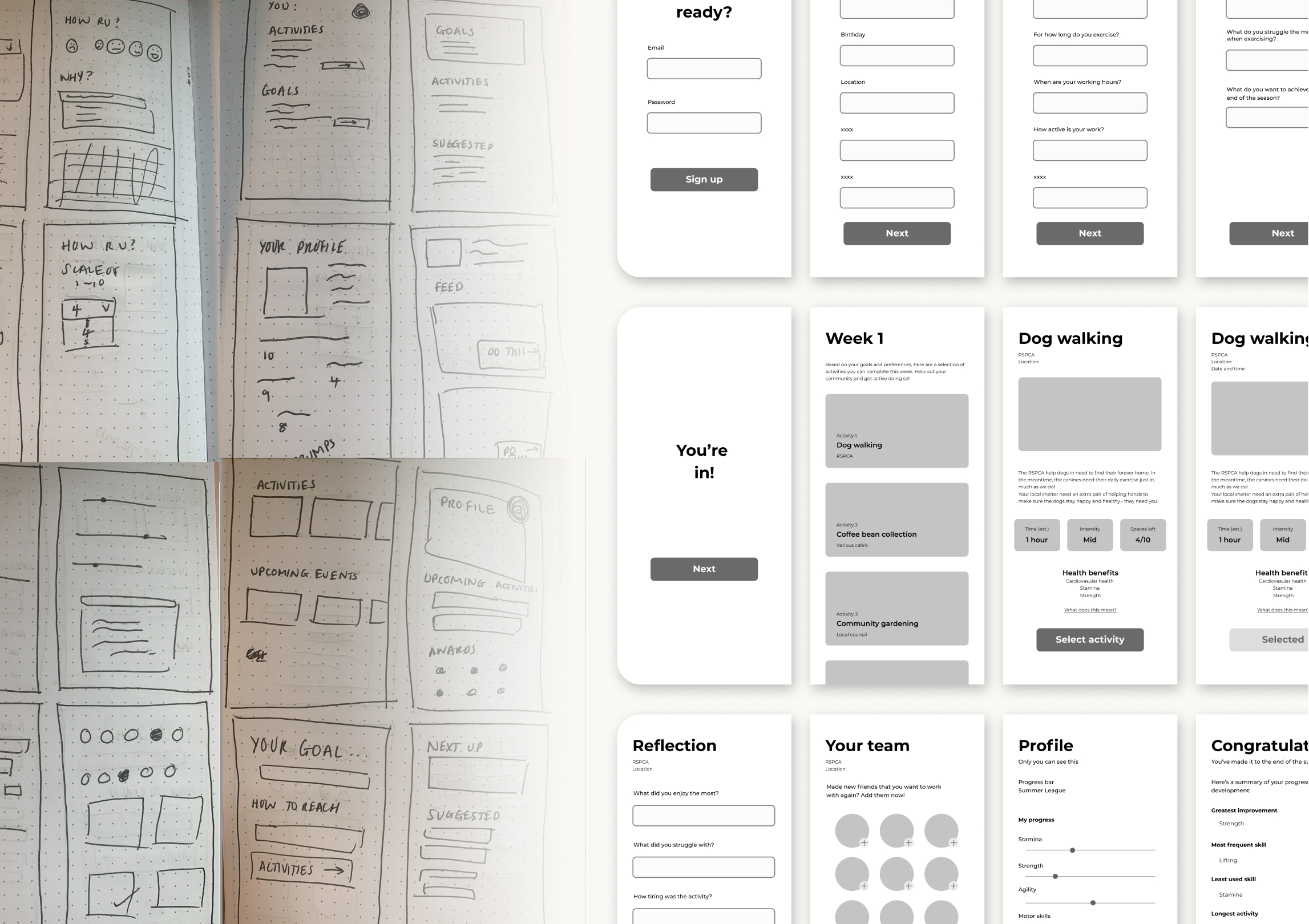
Ideation
The decision was made to diverge away from solutions that provide a direct pathway into sport, as it was clear from the research findings that sport itself is not the categorical goal for the target user. Several ideation methods were implemented to identify opportunities for innovation, such as mash-up, how might we, crazy eights, and concept mapping, so as to tackle this unique set of user needs.
A five-stage agile design process was adopted to develop the concept, utilising methods such as concept narratives, experience prototyping, wireframing and usability testing to gain feedback on progressive improvements and identify problematic areas. The complexity of the concept progressed with each design sprint, integrating strategies for behaviour change, capabilities of the technology and features to drive individual & social value.
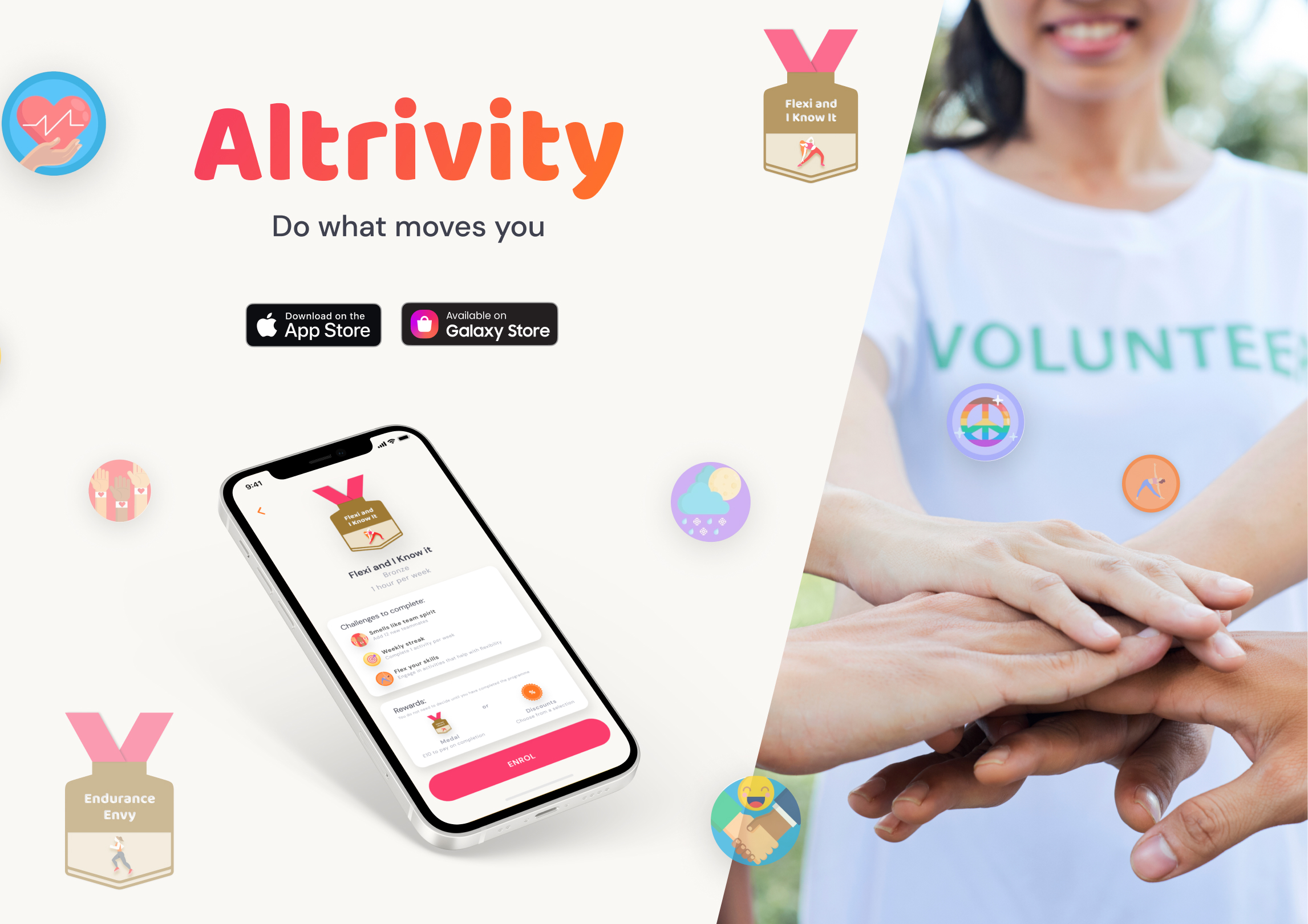
Altrivity - Concept
Altrivity is an active volunteering service that bundles community action with exercise to enable young women to associate exercise with positive outcomes. By signing up for one of the 12-week programmes, participants can engage in a variety of team-based activities which are geared towards helping the local community whilst also getting their heart rate up. Users can work towards badges and medals which are contingent on effort and consistency, as opposed to the comparative aspects relating to ability and fitness that sports and similar activities are so reliant upon.
The app elevates positive affordances and personalised support to help drive motivation in the short term, whilst also utilising self-reflection practices and goal setting to assert positive associations to physical activity and enable sustainable, intrinsically-driven engagement in the long term.
Reframing the narrative to promote exercise as a way of helping others as well as the individual harnesses the aspects of accountability and extrinsic motivation that is longed for by the target user, whilst also reducing fear of judgement by using consistency and community value as the measure of success.
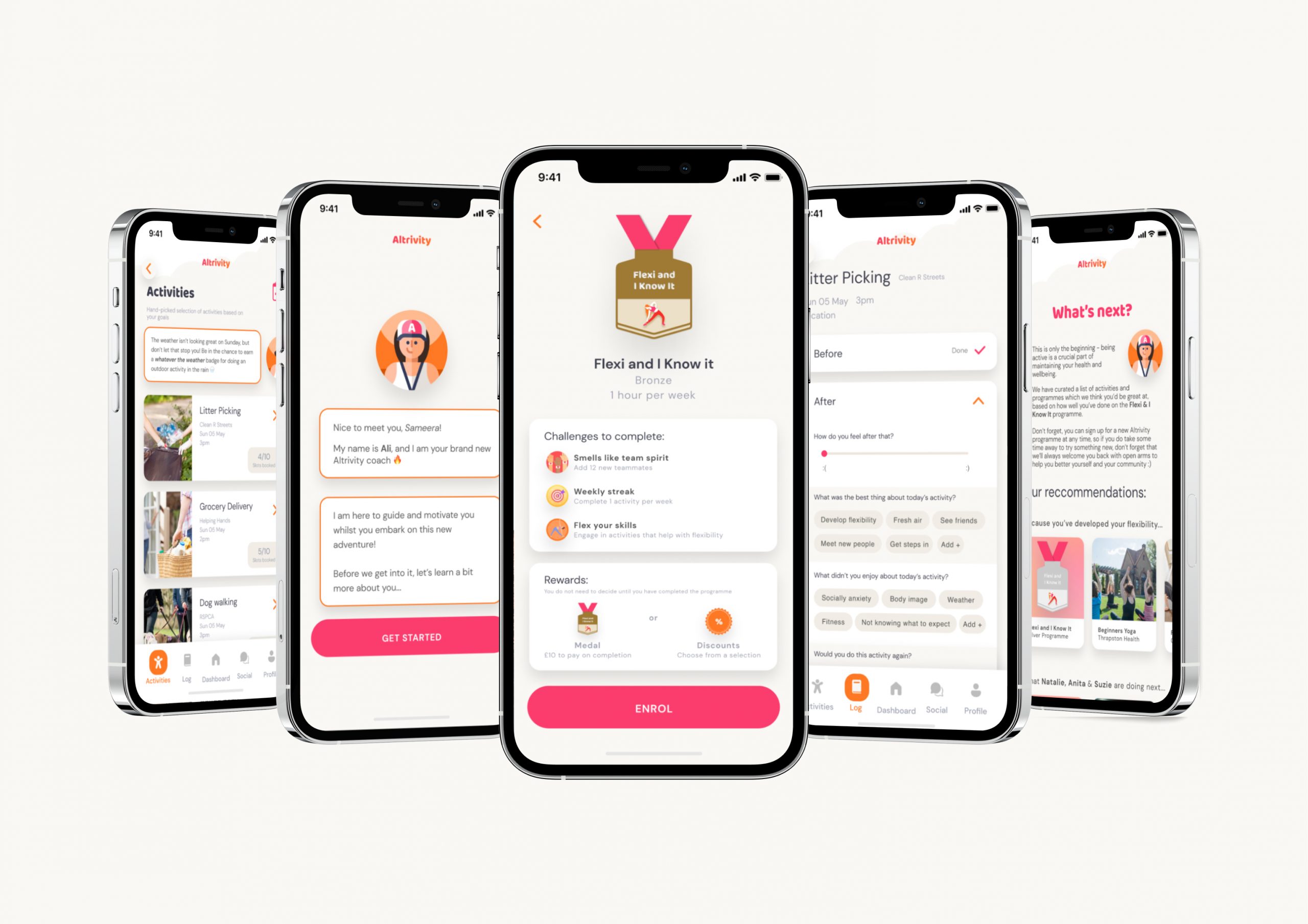
Altrivity - Key Features
Altrivity programmes are complemented by a mobile app, utilising machine learning and gamification to elevate the holistic user experience in the short and long term.
AI capabilities allow the user to receive curated activity suggestions based on their goals, lifestyle and external factors (such as the weather) and also elicits the characteristics of Ali (the Altrivity coach) through portraying a genial, yet motivating personality. Users fill out a log before and after an activity to teach the AI which aspects of that particular activity they enjoyed. In turn, this information allows Ali to be more personable when communicating insights and helps to tailor suggestions for future activities.
Further, the ability for users to earn digital badges and physical medals makes progress and achievement tangible and measurable, acting not only as a form of motivation but also as a way to track engagement and patterns of behaviour, feeding back into the AI functionalities of the app to improve the user experience.
Lilymae Prescott
A multifaceted, analytical problem solver with an ambition to find simplicity in a world of chaos
With an academic background in Philosophy, I have a natural interest in the varying ways people interact with the world and with each other. Pursuing UX Design has enabled me to not only develop this understanding further but has also provided me with the tools to enrich these interactions, as well as the capacity to bring about meaningful change in the future.
I have come away from this course with a wealth of knowledge and practical skills which have shaped me into a well-rounded, competent designer. In my next adventure, I am particularly excited to continue exploring the role of design within varying industries and start working within cross-functional teams. Further, getting a flavour of the role of design within a professional setting through this year's Industry Project has accelerated my interest in exploring the impact of design and digital in business.
Major project
Altrivity: Facilitating Participation In Physical Activity For Young Women Through Community Action
Awards
Commendation: Hubbub's Design by Nature Competition - 2021
Shortlist: GenGame's Smart Meter Data Brief - 2021
Best Branding Award: UXathon - 2020
Scholarship: iXperience UX/UI Student - 2020